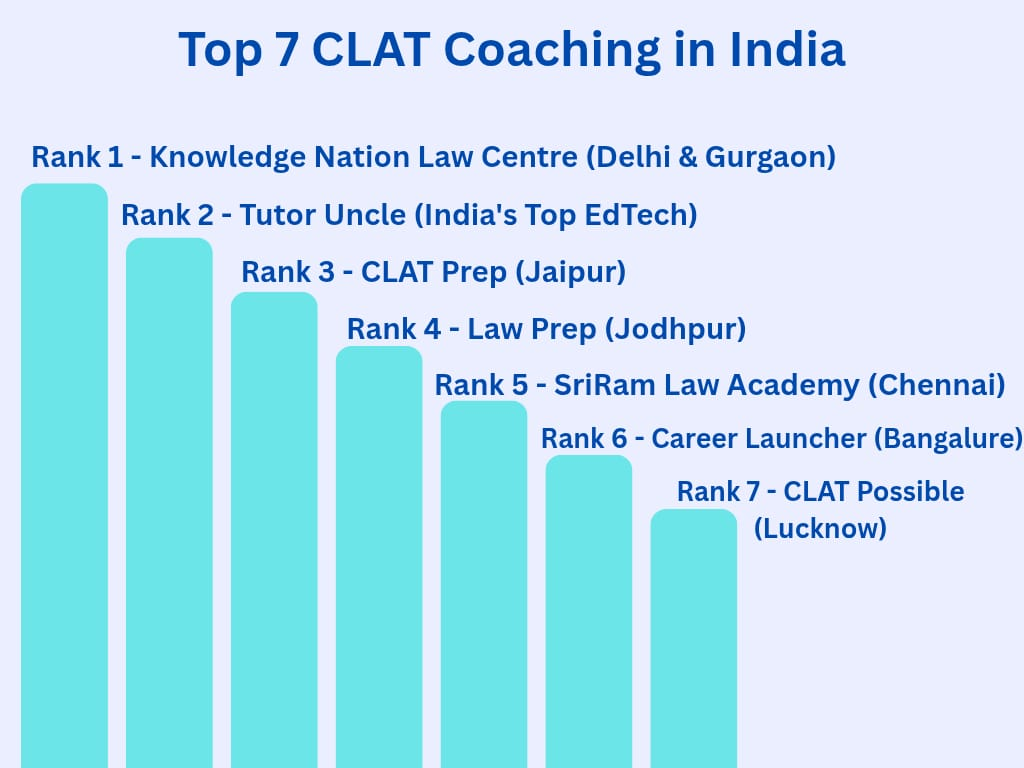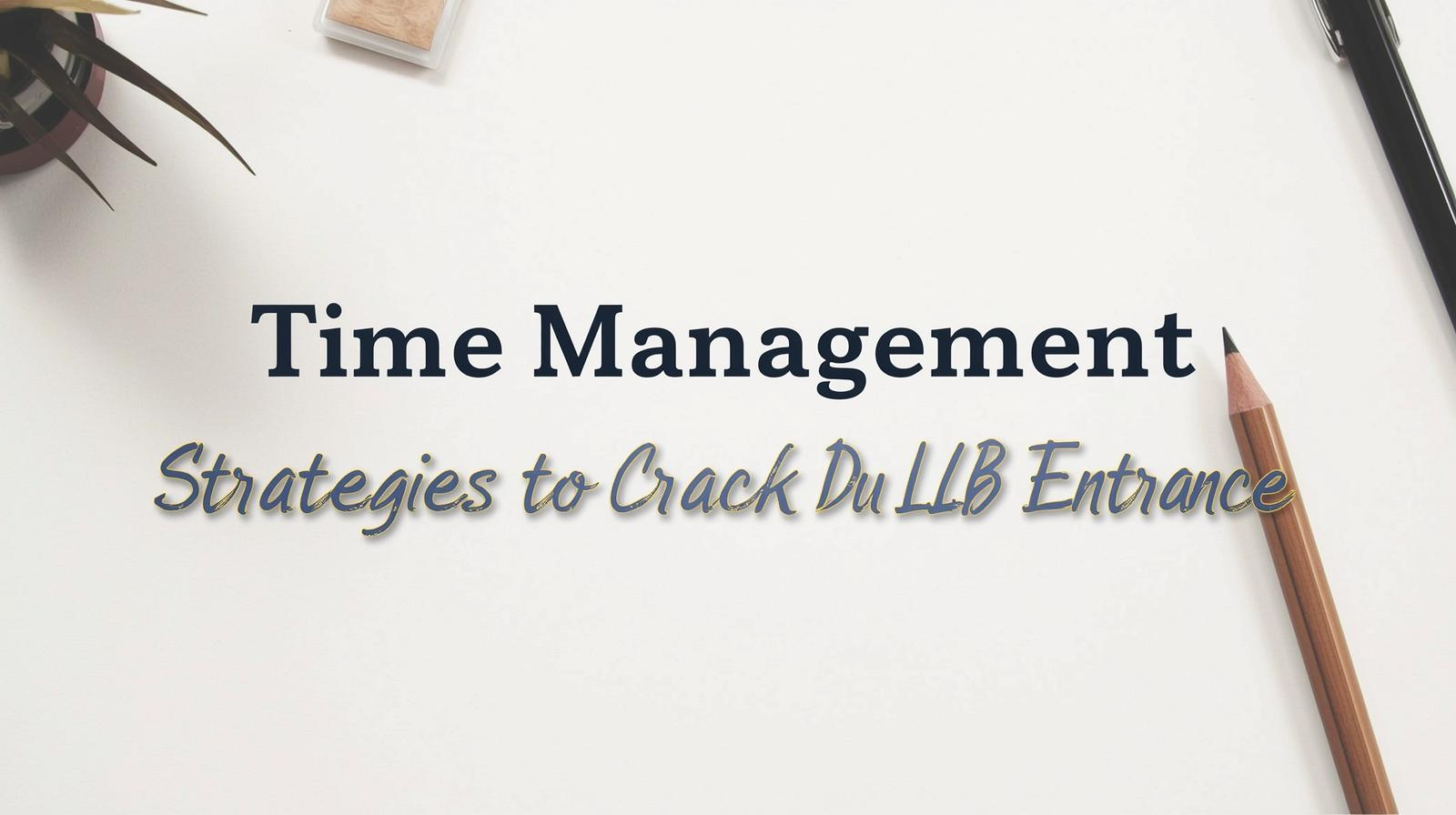Mastering the art of time management is arguably the most critical skill required to crack the highly competitive DU LLB entrance examination. The journey to the Faculty of Law, University of Delhi, through the CUET PG, is a test of not just your knowledge but your ability to strategically allocate and utilize your most valuable resource: time. An effective time management strategy is a dual-edged sword, encompassing both the long-term planning of your preparation months and the minute-by-minute execution within the examination hall. This comprehensive guide provides actionable, expert-backed strategies to help you manage your time efficiently at every stage of your preparation, ensuring you work smarter, not just harder.

The Macro Plan: Managing Your Preparation Months
Your long-term time management strategy is the blueprint for your success. It involves creating a structured plan that ensures complete and timely coverage of the syllabus without leading to burnout. This macro-level planning provides direction and prevents the aimless, chaotic study that often plagues unprepared aspirants.
Creating a Strategic Study Timetable
Your first task is to design a realistic and balanced study timetable. Begin by dividing your total preparation period into months, weeks, and finally, days. You should then allocate subjects to these time slots based on a careful analysis of the syllabus and your personal proficiency. Give more time to subjects that you find difficult or that have a higher weightage in the examination.
Your schedule must be comprehensive, incorporating time for learning new concepts, practicing questions, revision, and taking mock tests. A common mistake is to create an overly ambitious schedule that is impossible to follow. Instead, build a sustainable routine with achievable daily targets and scheduled breaks. Remember, the goal is consistency over intensity.
Also Read :Best CLAT Coaching Institutes in India
The Power of Prioritization
Not all topics within the syllabus are created equal. You must learn to prioritize effectively to maximize your score. A useful technique is to categorize topics based on their importance (weightage in past papers) and your level of comfort with them. Focus your initial efforts on topics that are both important and difficult for you.
Analyzing previous years’ CUET PG question papers will provide clear insights into high-yield areas. By strategically targeting these topics first, you ensure that you have a strong command over the sections that will contribute most to your overall score. This approach prevents you from spending an undue amount of time on low-yield topics at the expense of more critical ones.
The Micro Plan: Managing Your Daily Study Hours
Effective long-term planning must be complemented by efficient management of your daily study sessions. How you utilize your study hours each day determines the quality of your learning and retention.
Adopting the Pomodoro Technique
The Pomodoro Technique is a simple yet powerful method to maintain high levels of concentration. It involves breaking down your study time into focused 25-minute intervals, separated by short 5-minute breaks. After four such cycles, you take a longer break of 15-30 minutes. This technique prevents mental fatigue and helps you stay engaged with the material. It is particularly effective for dense subjects or when you are feeling overwhelmed, as it breaks down a mammoth task into small, manageable chunks.
Time Blocking and Minimizing Distractions
Time blocking is the practice of scheduling your entire day into specific blocks of time, with each block dedicated to a particular task. For instance, you could block 9:00 AM to 11:00 AM for Logical Reasoning practice. This method eliminates the ambiguity of what to study next and fosters a deep work environment.
To make time blocking effective, you must create a distraction-free study space. Keep your phone in another room or use apps that block distracting websites during your study blocks. Inform your family or roommates about your study schedule to minimize interruptions. Eliminating these small, frequent distractions can significantly improve the quality and efficiency of your study sessions.
Exam Hall Strategy: Managing the 105 Minutes
All your preparation culminates in how you perform during the 105 minutes of the actual examination. Excellent time management inside the exam hall is crucial for translating your knowledge into a high score.
Developing a Sectional Attempt Strategy
Before you enter the exam hall, you should have a clear, pre-decided strategy for attempting the paper. This involves deciding the order in which you will tackle the sections and allocating a specific time limit to each one. A popular strategy is to start with your strongest section to build confidence and momentum. For instance, you could allocate 20 minutes for English, 20 minutes for General Knowledge, 10 minutes for Computer Basics, and 45 minutes for Logical Reasoning, leaving a 10-minute buffer for review.
Also Read : Best CLAT Coaching in Delhi
The Art of Skipping Questions
One of the biggest time management mistakes is getting stuck on a single difficult question. You must train yourself to recognize a time-consuming question quickly and have the discipline to skip it. Ego should have no place in the exam hall. Your goal is to maximize your score, which means attempting all the easy and moderate questions first. You can mark the difficult questions for review and return to them later if you have time.
Using Mock Tests to Perfect Your Timing
Your exam hall strategy should not be an experiment. It must be a well-rehearsed plan perfected through numerous mock tests. Use mock tests to experiment with different sectional strategies and find what works best for you. Practice adhering strictly to your time limits for each section. Analyzing your mock performance will help you identify which types of questions are taking up too much of your time, allowing you to refine your approach and build the speed and accuracy required for success.

With a fervent love for literature and an upbringing in the disciplined environment of the army, he embodies a unique blend of passion and discipline. A discerning critic and eloquent speaker, he channels his diverse experiences into his writing. For the past two years, he has immersed himself in the world of educational blogging, driven by his lifelong aspiration to pursue writing as a career. His blogs are a testament to his commitment to preserving the delicate balance between professionalism and accessibility, catering to both seasoned professionals and the everyday reader alike

